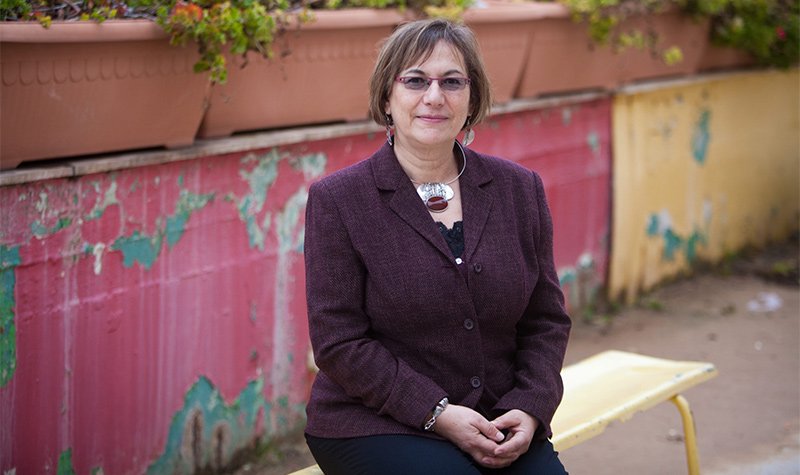Editor’s note: Prof. Shalva Weil, the author of this article and an expert on the issue of femicide, is a Senior Researcher at HU’s Research Institute for Innovation and the Seymour Fox School of Education.
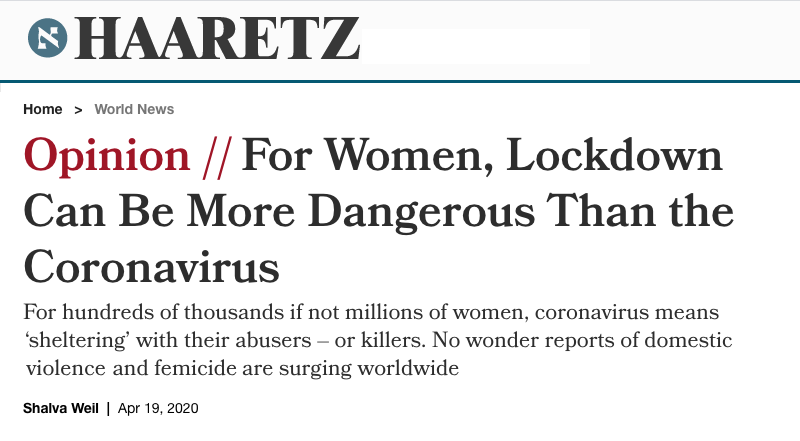
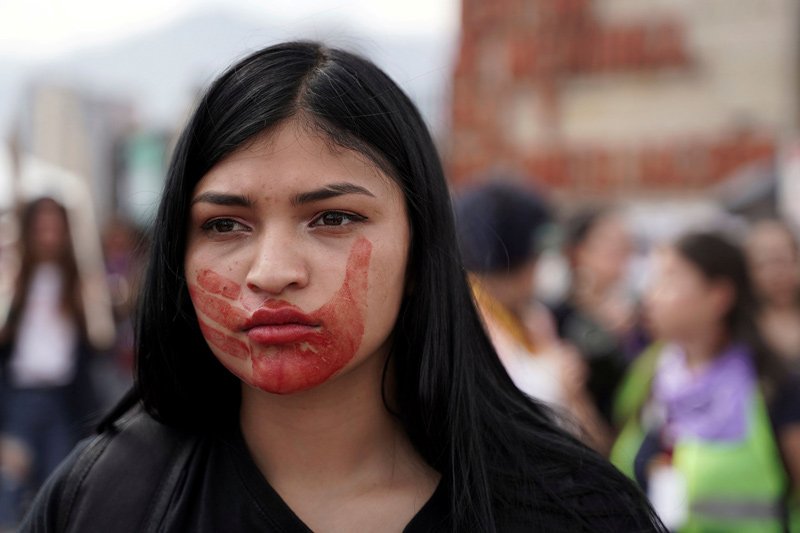
Ever since the coronavirus pandemic broke out, women are dying in even higher numbers than before – not only by the virus itself, but at the hands of abusive partners with whom they are locked down at home. Perhaps if these victims of femicide were added to the statistics we see on the pandemic’s daily death toll statistics, the world would become more aware of the terrible plight of women violated by men and, in extreme cases, murdered by them.
Femicide, or the killing of women because they are women, is a global phenomenon, which occurs in every society and at every level. A total of 87,000 women were intentionally killed in 2017 (the most recent year for which we have statistics). Nearly 60,000 women were killed by intimate partners, former partners, or family members. 137 women across the world are killed by a member of their own family every day.
The coronavirus crisis has only exacerbated these statistics. I initiated and chaired the European Union-funded COST Action on Femicide across Europe, chairing a committee of 80 representatives from 30 countries. During this time, I spoke three times in the UN on femicide. In 2018 I coedited a book, Femicide across Europe. In 2019 I headed FAEN, Femicide across Europe Network, a femicide-monitoring network with over 200 individuals and organizations in different countries which I reactivated in March 2020 to assess the level of violence against women during the pandemic.
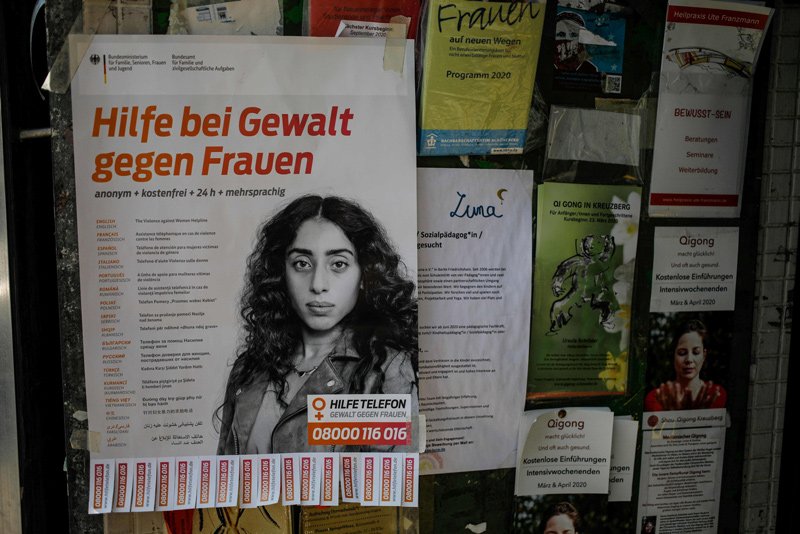
All countries have reported an increase in domestic violence, and femicide rates are also on the rise.
Two weeks ago, the United Nations Secretary General called for a domestic violence “ceasefire” amid a “horrifying global surge” linked to coronavirus lockdowns. He was responding to a UN report that highlighted the “spike in domestic violence reporting, at exactly the time that services, including rule of law, health and shelters, are being diverted to address the pandemic. With families isolated in their homes, children are also facing the rapid increase of online child abuse.”
Peace is not just the absence of war. Many women under lockdown for #COVID19 face violence where they should be safest: in their own homes.
Today I appeal for peace in homes around the world.
I urge all governments to put women’s safety first as they respond to the pandemic. pic.twitter.com/PjDUTrMb9v
— António Guterres (@antonioguterres) April 6, 2020
Furthermore, the threat and closure of women’s shelters has meant that some women and their children are thrown back to live with their assailants in frightening circumstances. With greater isolation, women are less in touch with social networks and support groups, and helplessness is increasing.
Sometimes, misogyny knows no bounds. In Romania, one COVID-19 patient was caught escaping quarantine in order to attack his ex-wife. In Turkey, anti-abuse hotlines are inundated with complaints by women, who are suffering both mental and physical violence at the hands of abusive partners. In Brazil, the state hotline “Ligue 180” reported an increase of 18 percent in calls in one week in March alone. In France, the Interior Minister, Christophe Castaner, publicly admitted that domestic violence had increased by 30 percent since the lockdown.
Additional cases of severe domestic violence may remain unreported, in situations in which the only way to inform the authorities is by internet or by phone, and these may be prohibited or confiscated by an abusive partner.
Nations are being forced to confront the issues of domestic violence, with the threat of femicide hovering in the background, but resources are being channeled towards the fight against the COVID-19 pandemic, and social and health services to the victims of domestic violence are being reduced. In practice, since femicide is of such low national priority, it is the NGOs who take the lion’s share.
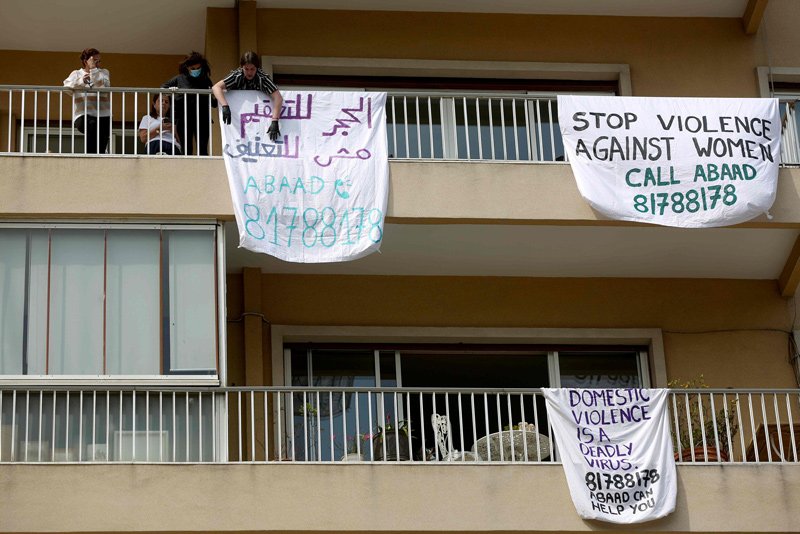
In Chile, an NGO has developed a “Feminist Emergency Plan for the Coronavirus Crisis” with strategies for collective feminist mutual aid, which include emergency plans for women to exit dangerous domestic situations, and mobilizing health professionals and carers for children. In Mexico, social sector efforts to cope with violence against women have been truncated, but advocacy organizations are valiantly trying to help.
To date, there is no systematic comparative data on femicide during coronavirus, but there are a few empirical reports. In Spain, there were 18 femicide fatalities since the beginning of 2020 till mid-March, and a third occurred during the coronavirus outbreak. In Argentina, where the rate of femicide is extraordinarily high even in normal times, 86 femicides have already been perpetrated since the beginning of 2020, of which 24 occurred during the COVID-19 plague. The Argentinian Femicide Observatory reported that one woman was killed every 29 hours during March 2020.
In Turkey, 18 women have been killed since the lockdown, the majority in their homes. In the United Kingdom, 14 women were murdered in March by men, nearly three times the average for the same period over the last decade, according to the UK Femicide Census and the NGO “Counting Dead Women.”
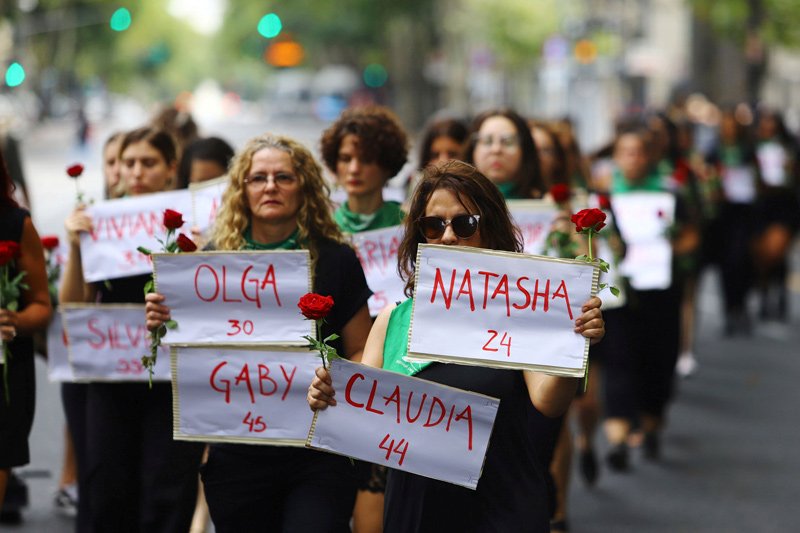
So what is happening in Israel? Israel does not even have a Femicide Observatory. Statistics are not systematically collected such that police records, parliamentary data, reputable news sources and NGO reports differ widely. Hotlines throughout the country report that domestic violence has increased.
According to our data, there have been six cases of femicide since January 2020, half of which occurred during the coronavirus outbreak in March. The Israeli government has neither taken the threat of femicide seriously during this outbreak nor prior to it.
It is time to realize that femicide, like coronavirus, is also a pandemic, even if it has not been recognized as such by the World Health Organization. However, much as we like to think that the modern-day social order has changed and that there is more gender equality, the fact remains that a male-dominated world is today dedicated to combating the virus, but not yet prepared to dedicate equal attention and resources to eradicate the pandemic of femicide.
